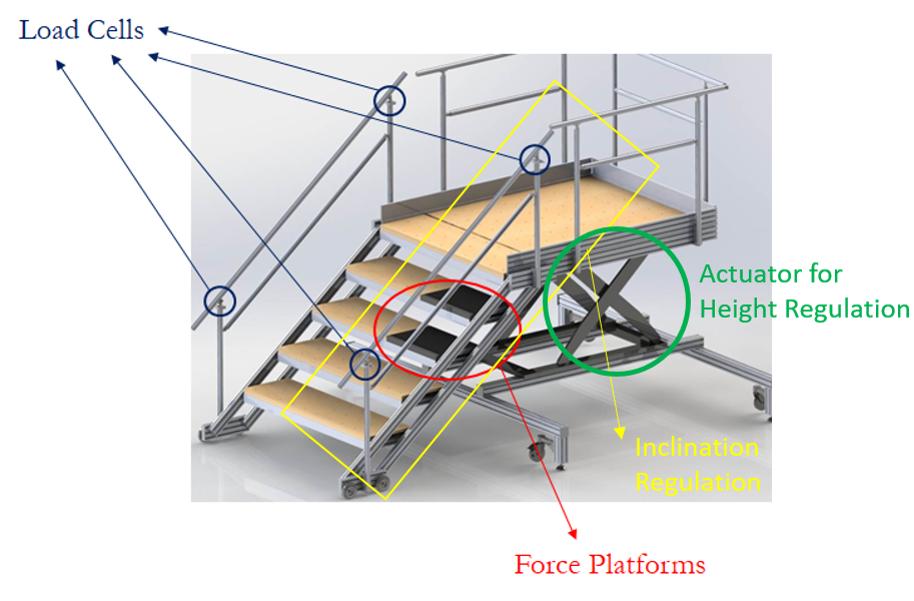Espositori 2020
- CULTURAL HERITAGE
- AEROSPACE
- ARTIFICIAL INTELLIGENCE
- DRONES
- EDUCATION
- ENERGY & SUSTAINABILITY
- FOOD & AGRICULTURE
- HOME AUTOMATION
- INTERNET OF THINGS
- KIDS & EDUCATION
- NEW MANUFACTURING
- OPEN SOURCE
- RECYCLING & UPCYCLING
- ROBOTICS
- SCIENCE
- 3D PRINTING
- ART
- ARTISANS & NEW CRAFT
- BIOLOGY
- FABRICATION
- GAMES
- HACKS
- STEAM PUNK
- WELLNESS & HEALTHCARE
- YOUNG MAKERS (< 18)
- 3D SCANNING
- MUSIC & SOUND
- FASHION & WEARABLES
EUROBENCH STEPbySTEP project
A recent review of the current literature on the clinical effectiveness of powered exoskeleton-assisted walking shows that most training programs and clinical studies are based on walking on flat indoor surfaces while there is a lack of data regarding the use of exoskeleton in more complex tasks such as walking outdoors, navigating obstacles, climbing stairs, and performing activi¬ties of daily living. In this framework and considering that stairs are obstacles encountered frequently in daily living, the STEPbySTEP project will develop a modular and sensorized reconfigurable staircase testbed for lower-limb exoskeletons benchmarking. Specifically, the inclination of the staircase will be easily adjustable as well as, consequently, the height of the steps. Furthermore, the staircase will be provided at the upper end with a platform adjustable in height allowing for turning and with sensorized handrails at both sides for safety reasons. With regard to measurements, load cells for the handrails, two force platforms embedded in the stairs, a motion capture system, and a physiological-signal measurement system (e.g., heart-rate and EDA measurement) will be integrated into the testbed. These measurements along with the EMG signals from the system available at the main facility will be used to define and calculate performance metrics to evaluate the exoskeleton solutions. In addition, since benchmarking is usually based on performance indicators and/or effects on the user’s motor function there is a lack of understanding of the users’ experience and evaluation of bipedal locomotion for rehabilitation and assistive purposes. The STEPbySTEP approach will integrate measurements from the human factors’ perspective (i.e., trust, cognitive workload, and usability) by introducing a new standard index. The goal is to outline a benchmarking scheme in order to compare systems and define which one is most usable for the final user.
Loris Roveda received the M.Sc. (2011) and the Ph.D. (2015) in Mechanical Engineering at Politecnico di Milano. Currently, he is a senior researcher at SUPSI-IDSIA, working on AI and ML techniques applied to industrial robotics (such as exoskeletons, robot control, human-robot collaboration, dynamics identification). He has been involved in many national and European projects, and he is now coordinating the EUROBENCH STEPbySTEP project and he is the P.I. of the H2020 CS2 ASSASSINN project.



















































































